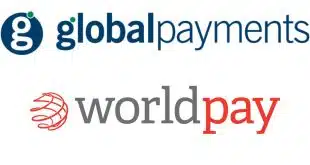The reduced interbank fee of 5.2 cents contained in the same-day settlement plan approved this week by members of NACHA, the regulatory body for the automated clearing house network, is likely to go down better with major merchants than the 8.2-cent fee contained in the original proposal.
“The level of the fee is always a concern. The fact they made a reduction is a positive step,” says Mark Horwedel, chief executive of the Merchant Advisory Group, a Minneapolis-based trade group that represents 175 big-box retailers and airlines on payments matters. Earlier this year, the MAG had filed a comment on the same-day proposal that sharply criticized the fee.
Originating banks are expected to pass the fee on to their merchant clients, and that still raises a concern for the MAG, Horwedel says, despite the 3-cent reduction. He fears originating banks, which handle ACH entries on behalf of merchants, may impose outsize markups on the fee as a way of raising revenue. “What is really in question is what does the 5.2-cent fee look like once it gets in the hands of the banks that originate ACH,” he says. “Will it be just 5.2 cents or will they find an excuse to raise it beyond 5.2 cents?”
Horwedel also repeated a concern the MAG and other merchant groups raised in their comments: the notion that the interbank fee is being imposed by a central authority, NACHA, rather than left to negotiation between merchants and their banks. This concern echoes a major objection many merchants have, for example, to credit and debit card interchange rates, which they have long complained aren’t negotiable.
“I still question NACHA’s authority to set the price like that in what should be an open market,” Horwedel says.
NACHA cut the fee, which is meant to reimburse receiving banks for costs they’ll incur to implement and run same-day processing, after eliminating so-called opportunity costs from its calculation. These costs refer to revenue banks could earn instead on other channels, such as wire transfers. Horwedel applauded the move to set aside opportunity costs. “That’s a very positive step,” he notes.
For their part, community banks that are net receivers of ACH transactions may not be all that concerned with the fee reduction. “It’s not a significant issue,” Robert Steen, chairman of Bridge Community Bank, Mechanicsville, Iowa, tells Digital Transactions News.
While many observers have argued that faster ACH could cannibalize the wire-transfer business, Steen disagrees. “There’s no evidence to support that argument,” he says. “In my view, there is no opportunity cost to us as a receiver.”
Instead, for Steen, same-day ACH advances a cause he has long pursued—protecting banking’s payments franchise. “As a community bank, we have to stay relevant in payments and not give it away to nonbanks,” he says.
The same-day plan is now expected to be implemented in three phases, with the first phase set to begin Sept. 23, 2016. This phase will allow same-day processing of ACH credits, which are used in hourly payroll, person-to-person payments, and bill-pay transactions.
Phase 2 will add debits, which are used in a wide range of consumer bill payments, and Phase 3 will usher in mandates for receiving financial institutions for faster ACH credit funds availability. Ultimately, the plan will add two clearing windows for ACH transactions, one that provides for a 1:00 p.m. Eastern Time settlement and one that results in a 5:00 p.m. Eastern Time settlement.





